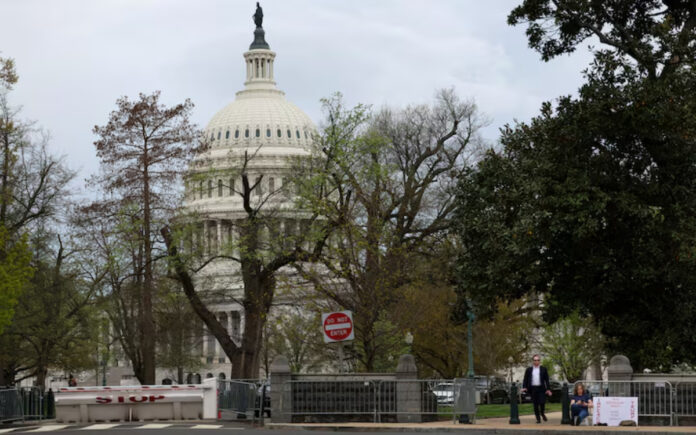Washington: The U.S. Congressional Budget Office (CBO) has projected a decline in the nation’s economic output as a direct result of President Donald Trump’s tariffs imposed on foreign goods through May 13. While these tariffs are expected to trim federal budget deficits by $2.8 trillion over the next decade, the CBO warned of negative consequences for inflation and overall economic activity.
In a letter addressed to Senate Democratic Leader Chuck Schumer, along with Senators Ron Wyden and Jeff Merkley, the non-partisan agency stated that the tariffs would drive up the cost of consumer and capital goods, thereby hampering economic growth.
“CBO estimates that, on net, real (inflation-adjusted) economic output in the United States will fall as a result,” the agency noted.
“Inflation will increase by an annual average of 0.4 percentage points in 2025 and 2026, in CBO’s estimation, reducing the purchasing power of households and businesses,” the letter further stated.
Also Read | Tariffs No Match for K-Beauty’s Rise in American Market
The analysis was requested by Schumer, Wyden—the senior Democrat on the Senate Finance Committee—and Merkley, the ranking Democrat on the Senate Budget Committee, in light of the Trump administration’s tariffs introduced through executive actions between January 6 and May 13.
According to the CBO, these projections were made by comparing the likely economic impacts against a baseline economic outlook published on January 17. The agency emphasized that while the tariffs might reduce fiscal deficits by increasing federal revenue through import duties, they would also place upward pressure on inflation and reduce overall real output.
Also Read | Cuban Students Demand Affordable Data as Boycott Calls Spread
The assessment was completed prior to recent legal setbacks for the administration: two federal court rulings concluded that the tariffs exceeded the president’s legal authority. The administration has since appealed the decisions and requested a pause on at least one of the rulings.
While the tariffs have been promoted by the administration as a means of protecting domestic industries and reducing trade imbalances, the CBO’s analysis highlights the broader economic trade-offs—namely, weaker growth and higher inflation—that could ripple across sectors in the coming years.



